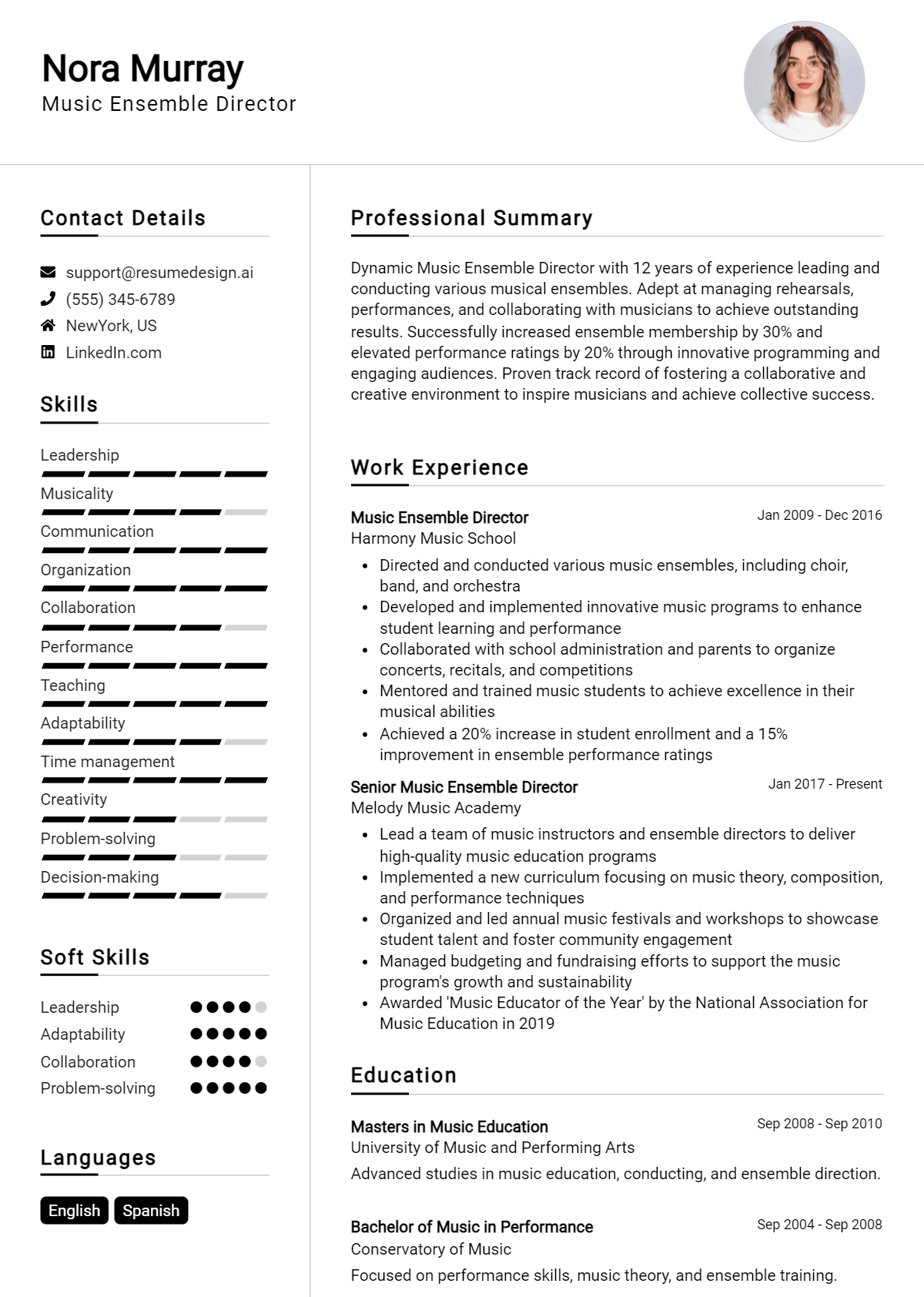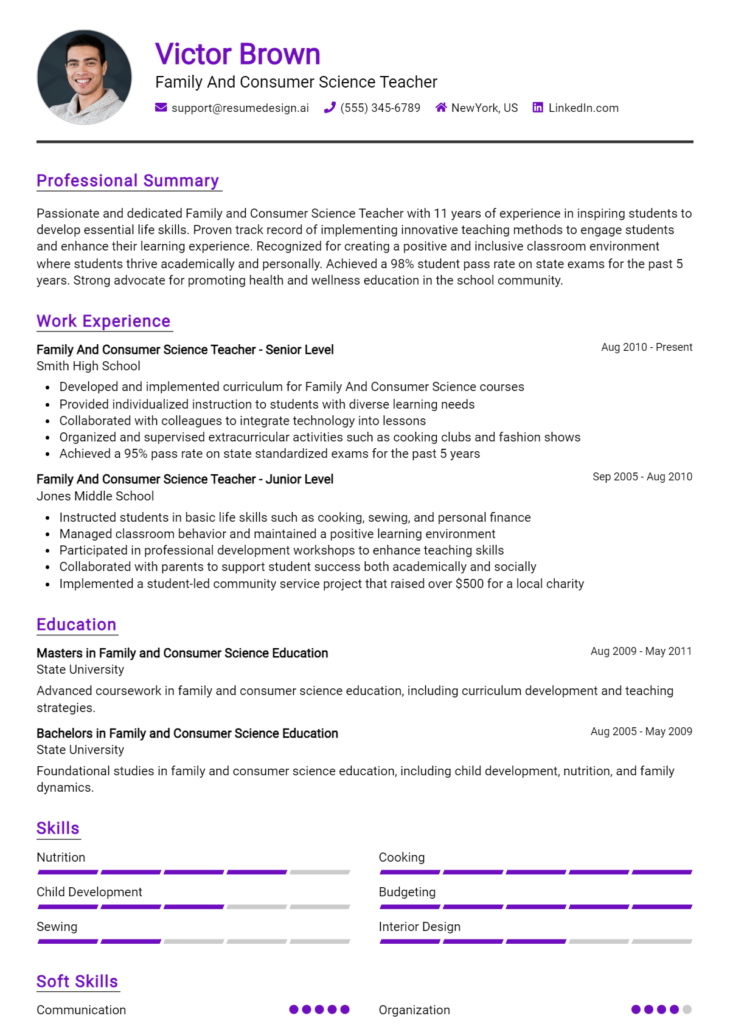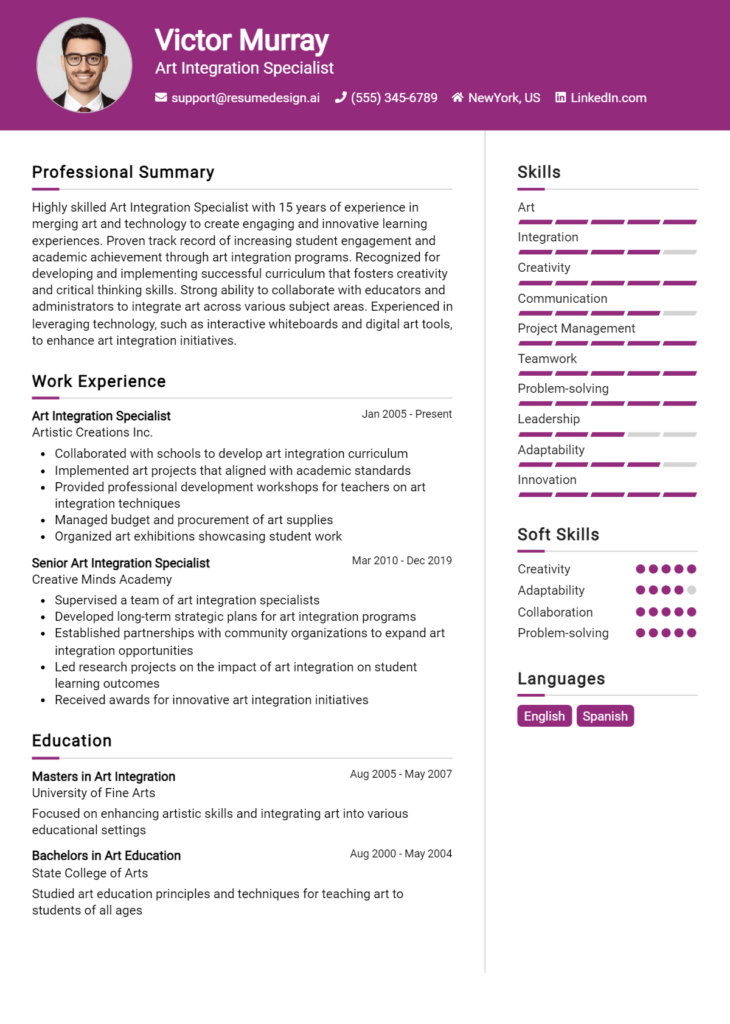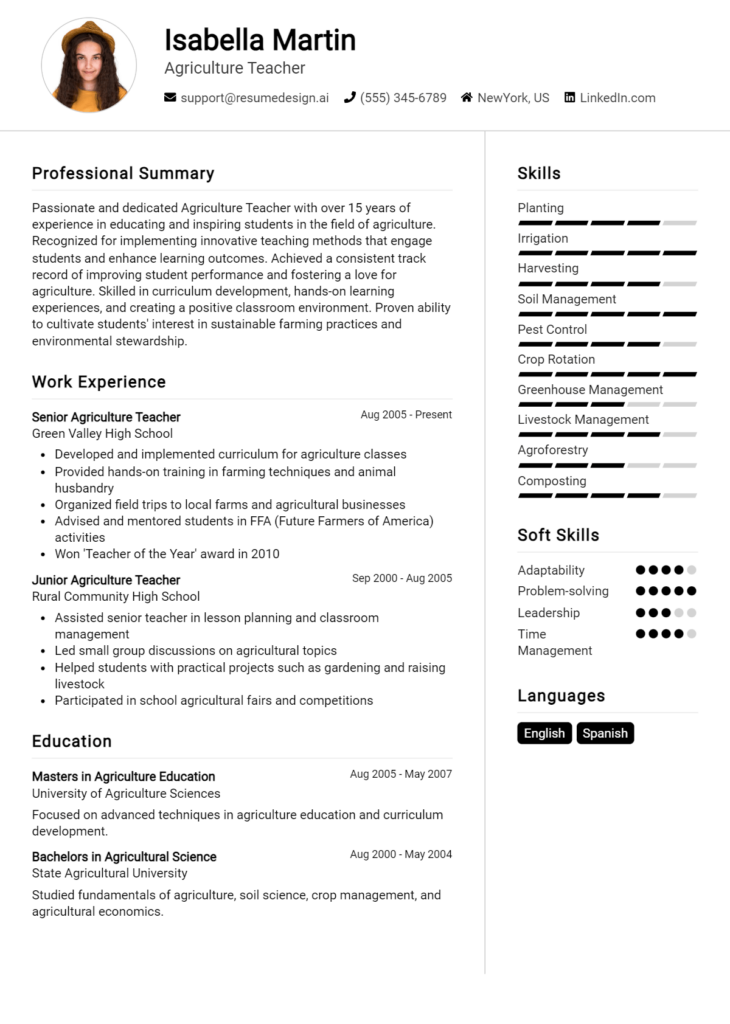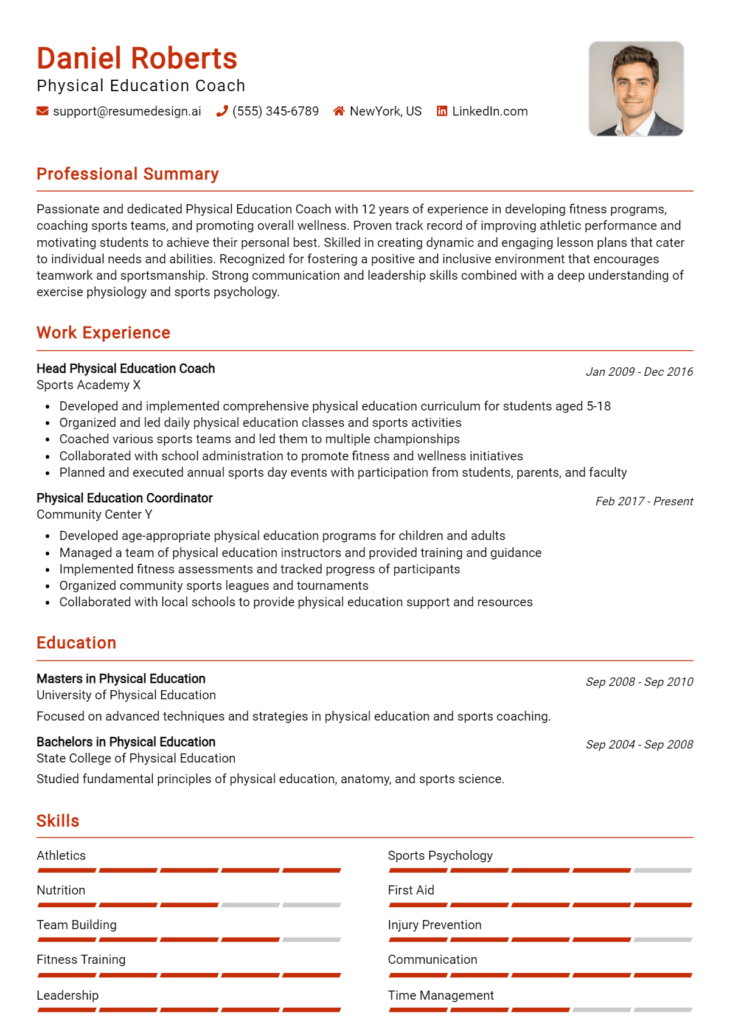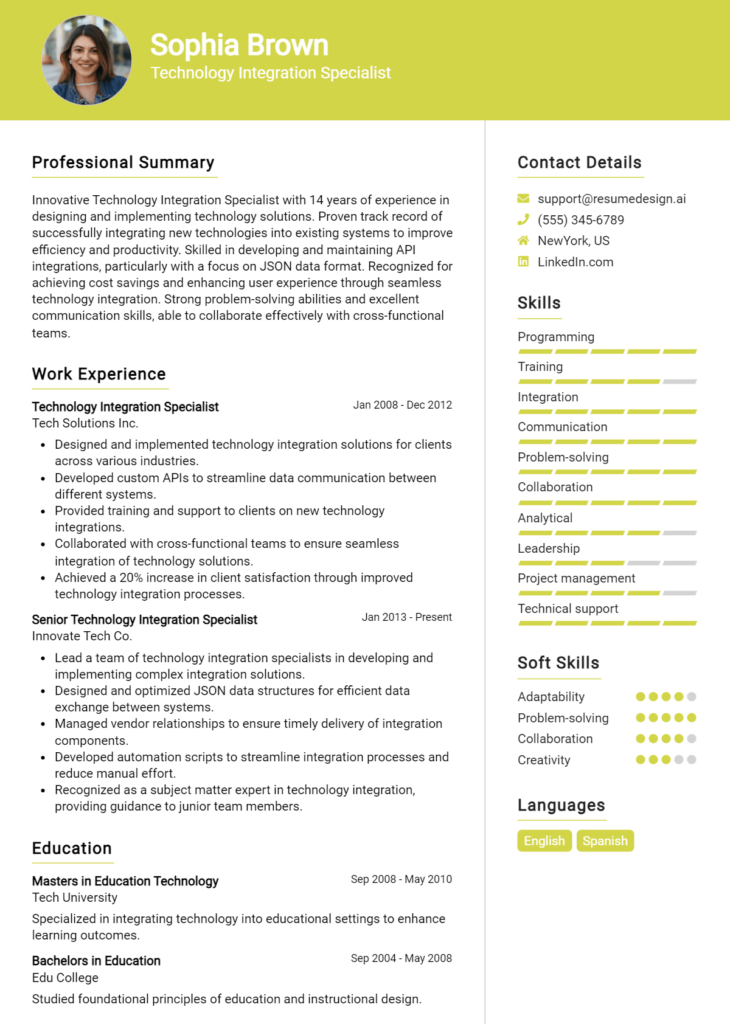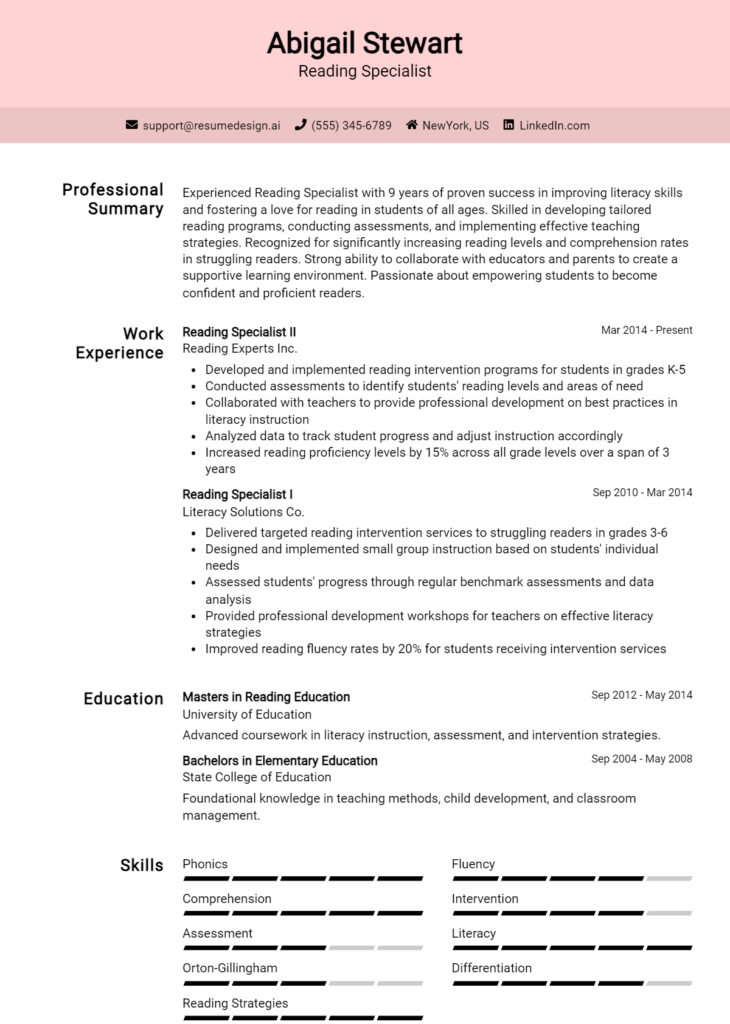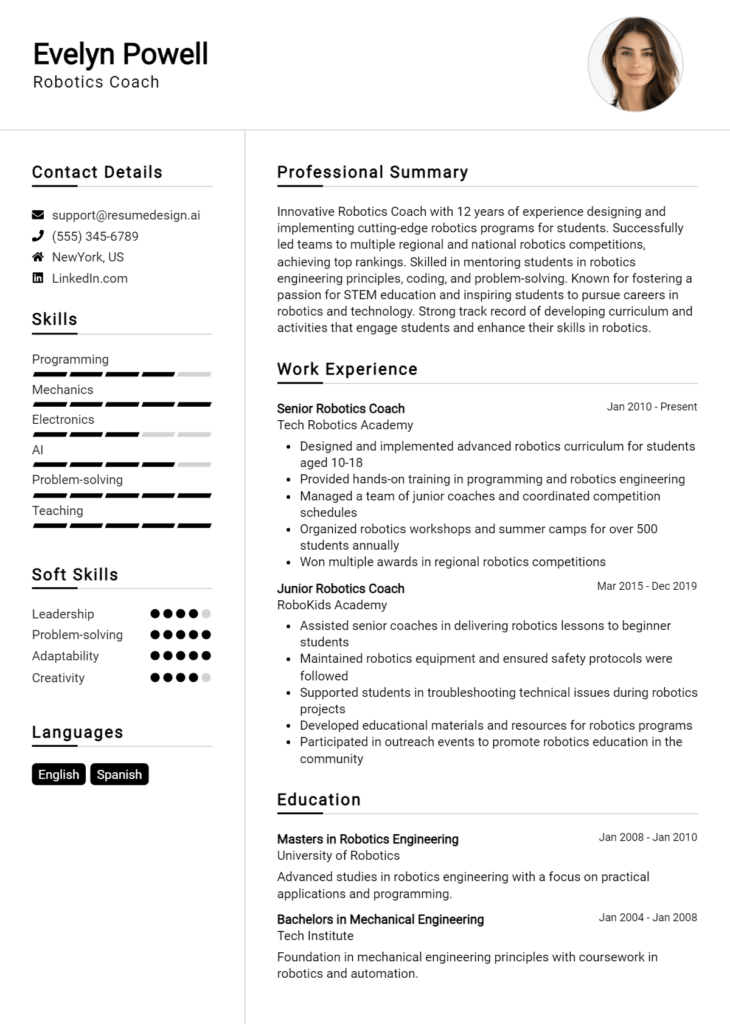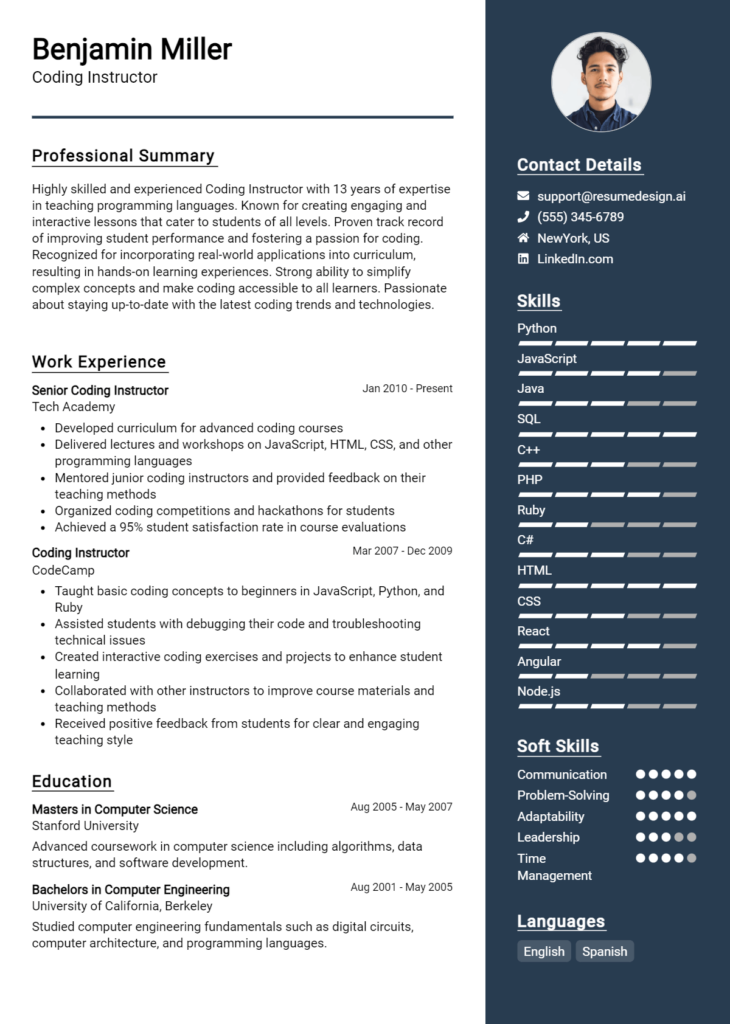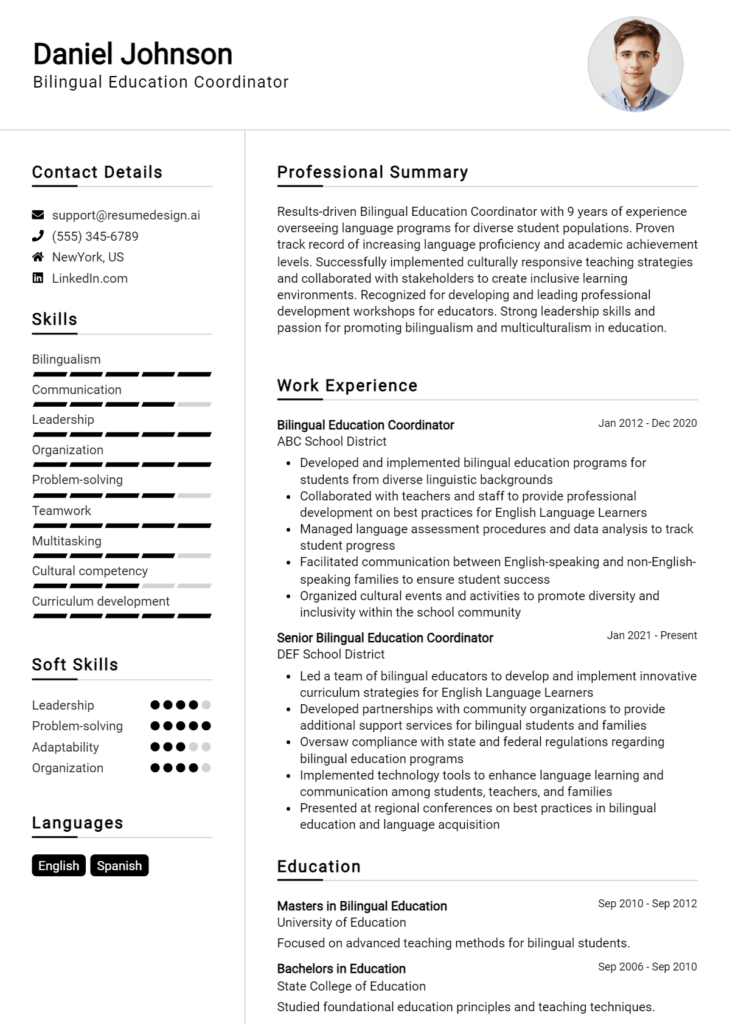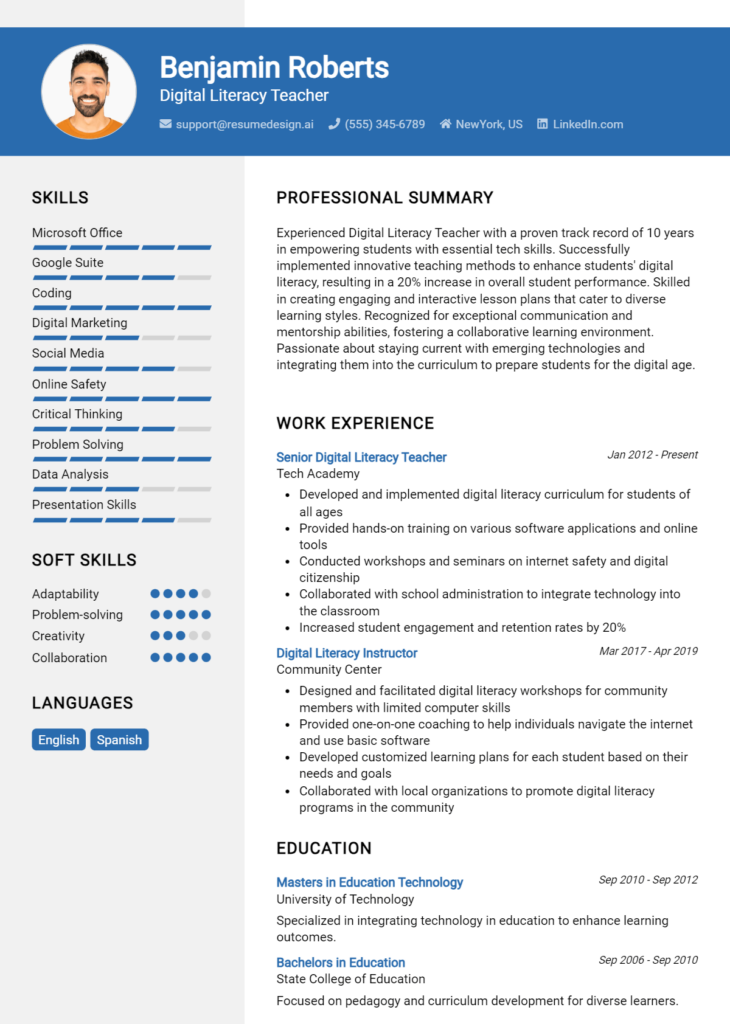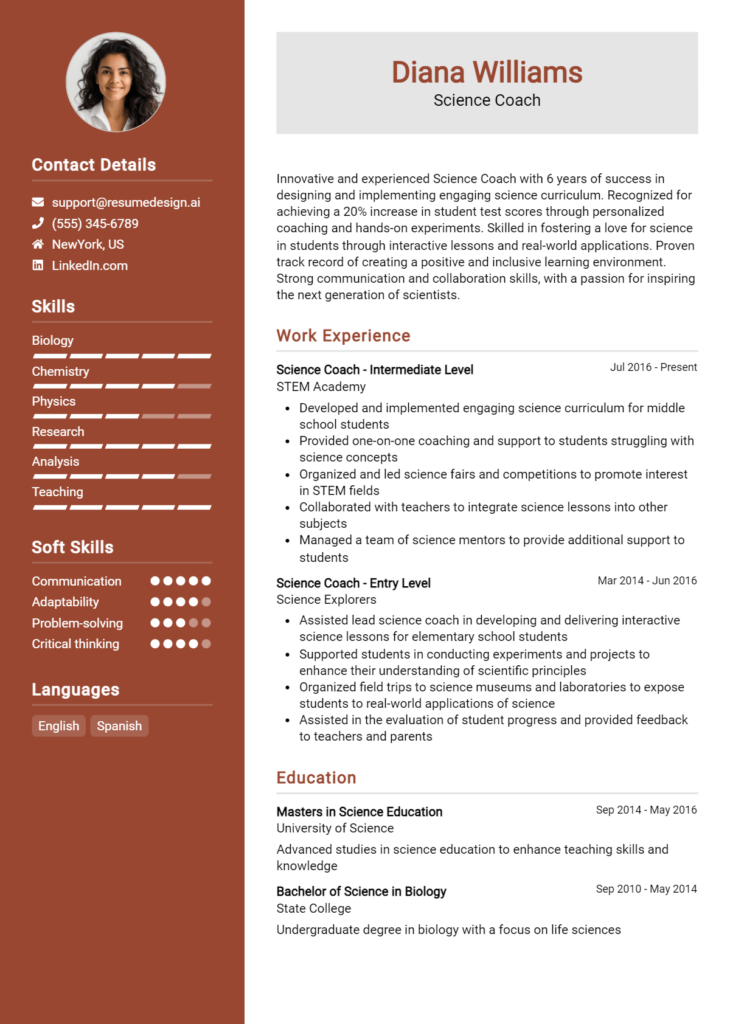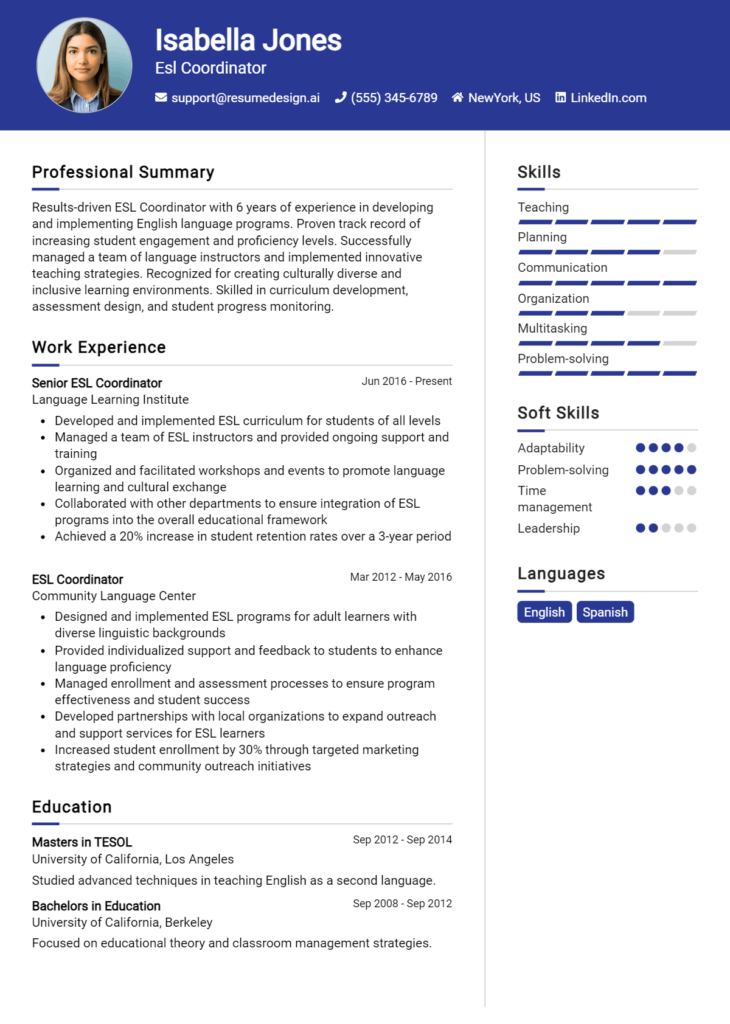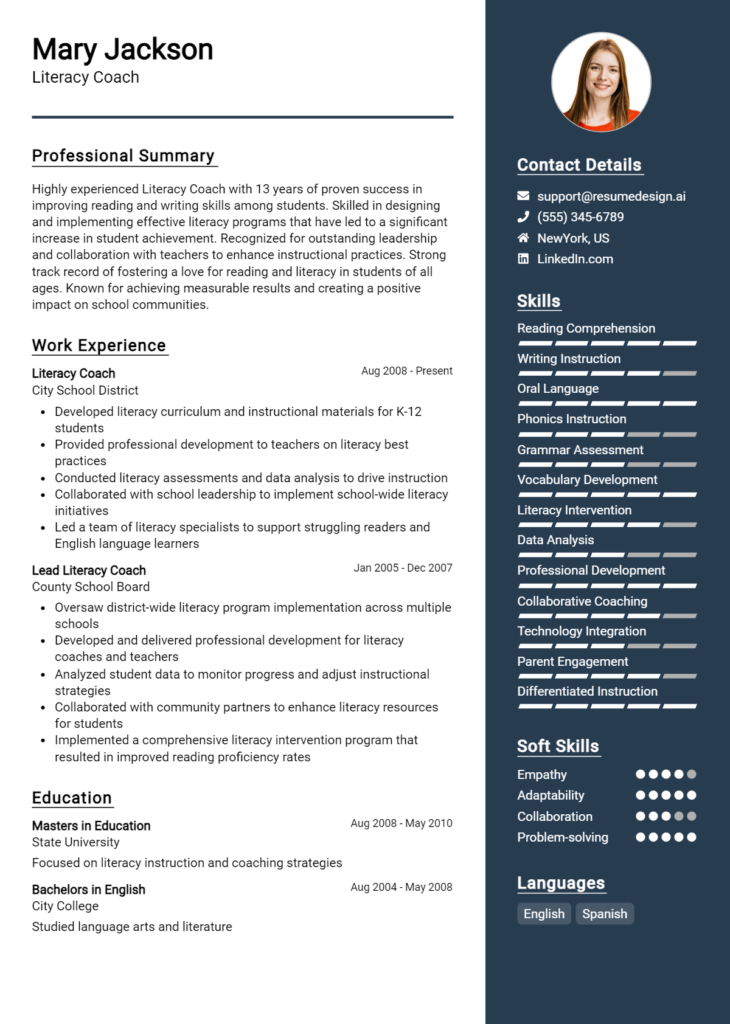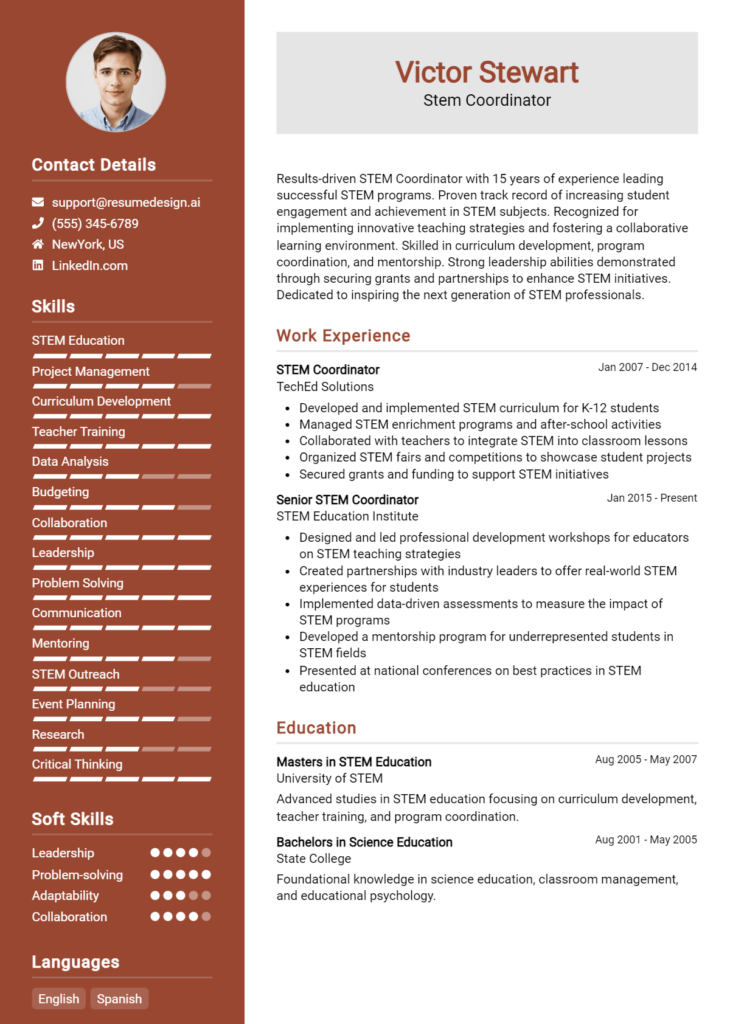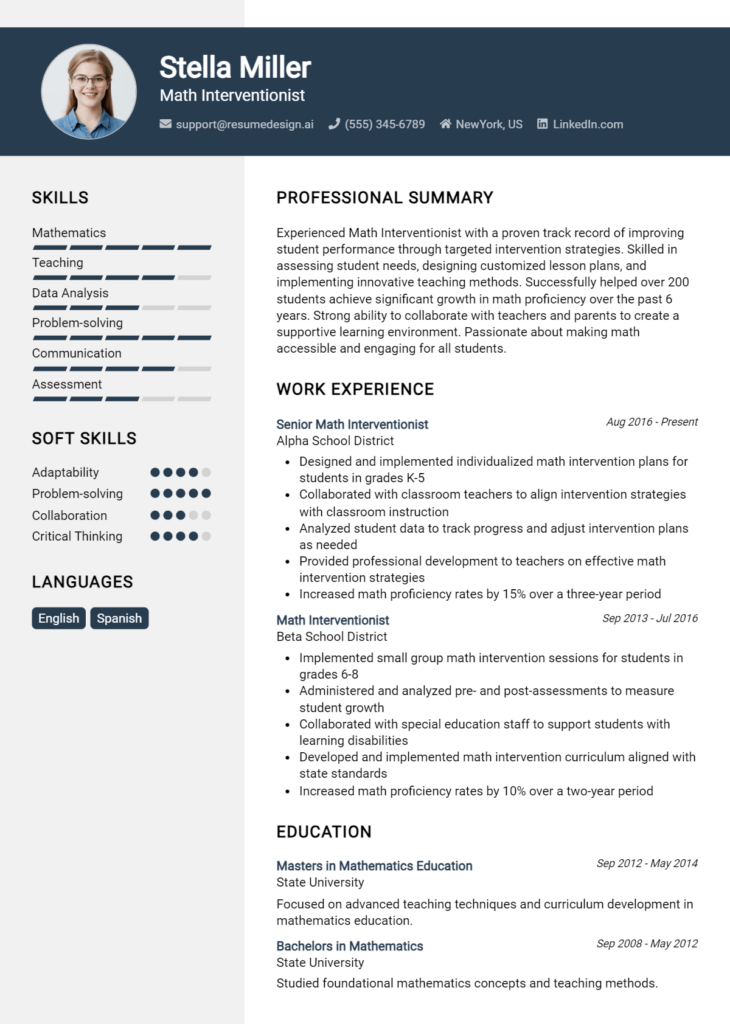Music Ensemble Director Core Responsibilities
A Music Ensemble Director plays a crucial role in leading and coordinating musical groups, requiring a blend of technical expertise, operational oversight, and strong problem-solving skills. This position serves as a bridge between various departments, including administration, education, and performance, ensuring cohesive collaboration towards the organization's artistic goals. Demonstrating these skills on a well-structured resume highlights a candidate's ability to enhance the ensemble's performance quality and contribute to the overall success of the institution.
Common Responsibilities Listed on Music Ensemble Director Resume
- Conduct rehearsals and performances for musical ensembles.
- Develop and implement curriculum for music education programs.
- Coordinate schedules and logistics for rehearsals and events.
- Select repertoire that aligns with the ensemble's goals and skill levels.
- Provide individual and group instruction to musicians.
- Assess and evaluate student performances and progress.
- Collaborate with other departments to promote musical events.
- Manage budgets and funding for ensemble activities.
- Recruit and audition new members for the ensemble.
- Organize outreach programs to engage the community.
- Foster a positive and inclusive environment for all musicians.
- Utilize technology for sound engineering and performance enhancement.
High-Level Resume Tips for Music Ensemble Director Professionals
In the competitive field of music education and ensemble direction, a well-crafted resume serves as your ticket to success. It is often the first impression you make on a potential employer, and it must effectively showcase your unique skills, experiences, and achievements. As a Music Ensemble Director, your resume should not only reflect your artistic abilities but also your leadership qualities and the impact you've made in previous positions. This guide will provide practical and actionable resume tips specifically tailored for Music Ensemble Director professionals, empowering you to create a document that stands out in a crowded job market.
Top Resume Tips for Music Ensemble Director Professionals
- Tailor your resume to the specific job description by incorporating keywords and phrases that highlight your alignment with the role.
- Showcase relevant experience, including any directorial positions, teaching roles, and performances that demonstrate your expertise in ensemble leadership.
- Quantify your achievements where possible, such as the size of the ensembles you've directed, the number of performances produced, or accolades received by your groups.
- Highlight industry-specific skills, such as proficiency in various musical genres, knowledge of music theory, and experience with arranging and composition.
- Include any relevant certifications or degrees that bolster your qualifications, such as a degree in music education or conducting.
- Emphasize your collaborative skills by detailing experiences working with musicians, composers, and other educators to foster a positive ensemble environment.
- Incorporate professional development experiences, like workshops, masterclasses, or conferences that illustrate your commitment to growth in the field.
- Utilize a clean and professional format that enhances readability, making sure to highlight key sections with clear headings and bullet points.
- Consider adding a section for awards and recognitions that underscore your contributions to music and your impact as a director.
By implementing these tips, you can significantly enhance your resume and increase your chances of landing a job in the Music Ensemble Director field. A well-structured and targeted resume not only showcases your qualifications but also communicates your passion for music and leadership, making you an attractive candidate to potential employers.
Why Resume Headlines & Titles are Important for Music Ensemble Director
In the competitive field of music education and performance, the role of a Music Ensemble Director is pivotal in shaping the artistic direction and success of a group. A well-crafted resume headline or title serves as the first point of engagement for hiring managers, providing a snapshot of the candidate's key qualifications and strengths. By summarizing essential skills and experiences in a concise and relevant phrase, a strong headline can immediately capture attention and set the tone for the rest of the resume. This initial impact is crucial in a crowded applicant pool, making it imperative for candidates to choose their words carefully and align their headlines with the specific requirements of the job they are pursuing.
Best Practices for Crafting Resume Headlines for Music Ensemble Director
- Keep it concise: Aim for a headline that is brief yet impactful, ideally under 10 words.
- Be role-specific: Directly reference the position of Music Ensemble Director to ensure relevance.
- Highlight key strengths: Include specific skills or achievements that distinguish you from other candidates.
- Use action verbs: Begin with strong verbs to convey your proactive attitude and leadership capabilities.
- Incorporate keywords: Use industry-specific terms that align with the job description to pass through applicant tracking systems.
- Showcase unique traits: Emphasize any distinctive qualities or experiences that reflect your personal teaching or conducting style.
- Align with the job description: Tailor your headline to match the specific requirements and values of the organization.
- Avoid jargon: Use clear language that is easily understood by individuals not familiar with technical music terminology.
Example Resume Headlines for Music Ensemble Director
Strong Resume Headlines
Dynamic Music Ensemble Director with 10+ Years of Experience in Leading Youth Orchestras
Innovative Conducting Specialist Focused on Collaborative Music Education and Performance
Experienced Music Educator Committed to Inspiring Excellence in Student Musicians
Passionate Music Director with Proven Track Record in Award-Winning Ensembles
Weak Resume Headlines
Music Teacher
Ensemble Director Looking for Opportunities
The strong headlines are effective because they clearly articulate the candidate's experience and value proposition, immediately communicating relevant qualifications to prospective employers. They incorporate specific achievements and qualities that align with the role of a Music Ensemble Director. In contrast, the weak headlines fail to make an impression as they are vague and generic, lacking any specific information about the candidate's skills or experiences. This lack of focus diminishes their appeal and makes it difficult for hiring managers to see the candidate's potential contributions to their organization.
Writing an Exceptional Music Ensemble Director Resume Summary
A well-crafted resume summary is crucial for a Music Ensemble Director as it serves as the first impression for hiring managers. This brief yet powerful statement quickly highlights the candidate's key skills, relevant experience, and notable accomplishments in the field of music direction. A strong summary is concise and impactful, tailored specifically to the job description, ensuring that it captures the attention of employers and sets the tone for the rest of the resume.
Best Practices for Writing a Music Ensemble Director Resume Summary
- Quantify Achievements: Use numbers and metrics to showcase the impact you’ve made in previous roles.
- Focus on Skills: Highlight essential skills such as conducting, arrangement, and music theory that are directly relevant to the position.
- Tailor for the Job: Customize your summary to align with the specific requirements and expectations of the job description.
- Use Action Verbs: Start sentences with strong action verbs to convey a sense of leadership and initiative.
- Highlight Leadership Experience: Emphasize your experience in leading ensembles and managing musical projects or events.
- Showcase Collaboration: Mention your ability to work with diverse groups of musicians and stakeholders.
- Include Professional Development: Reference any relevant certifications or continuous education that enhances your qualifications.
- Keep It Concise: Aim for 3-5 sentences that deliver maximum impact without overwhelming the reader.
Example Music Ensemble Director Resume Summaries
Strong Resume Summaries
Dynamic Music Ensemble Director with over 10 years of experience leading orchestras and choirs, achieving a 30% increase in performance attendance and a 50% improvement in student retention rates through innovative programming and community outreach.
Passionate about music education and performance, I have successfully directed award-winning ensembles that received accolades at regional competitions, including first place at the State Music Festival for three consecutive years.
Experienced in fostering a collaborative environment, I have managed a diverse group of 50+ musicians, implementing tailored rehearsal strategies that improved overall ensemble performance by 40% within one academic year.
Weak Resume Summaries
Music Ensemble Director with experience in leading groups and organizing performances.
Enthusiastic about music and working with students to create enjoyable musical experiences.
The strong resume summaries are effective because they provide specific, quantifiable results and clearly demonstrate relevant experience and skills that are directly aligned with the role of a Music Ensemble Director. In contrast, the weak summaries lack detail and measurable outcomes, making them too vague and generic to capture the interest of hiring managers.
Work Experience Section for Music Ensemble Director Resume
The work experience section of a Music Ensemble Director resume is crucial as it provides a platform for candidates to demonstrate their technical skills, leadership abilities, and successful management of musical teams. This section not only highlights the candidate's proficiency in conducting and music theory but also showcases their capacity to foster collaboration among musicians, create engaging performances, and deliver high-quality products to audiences. By quantifying achievements and aligning their experiences with industry standards, candidates can effectively illustrate their impact and value in the field of music education and performance, making a compelling case for their candidacy.
Best Practices for Music Ensemble Director Work Experience
- Highlight specific technical skills relevant to music direction and ensemble management.
- Quantify achievements with metrics such as audience size, performance ratings, or competition results.
- Emphasize collaboration and teamwork by detailing partnerships with musicians, faculty, and organizations.
- Include leadership roles and responsibilities that demonstrate your ability to guide and inspire musicians.
- Tailor your experience to align with industry standards and expectations for music ensembles.
- Showcase innovative approaches or programs you implemented to enhance musical performance.
- Incorporate feedback from peers, students, or supervisors to validate your impact and contributions.
- Use action verbs and engaging language to convey your achievements effectively.
Example Work Experiences for Music Ensemble Director
Strong Experiences
- Conducted a 50-member orchestra, leading to a 30% increase in audience attendance over two seasons through innovative programming and community engagement.
- Developed a mentorship program that improved student ensemble skills, reflected in a 20% rise in competition placements and awards.
- Collaborated with local composers to premiere five new works, enhancing the ensemble's repertoire and attracting media attention.
- Implemented a comprehensive assessment tool for ensemble members, resulting in a measurable 40% improvement in performance readiness.
Weak Experiences
- Led the music ensemble.
- Worked with students on various music pieces.
- Participated in local concerts.
- Managed rehearsals and performances.
The examples provided illustrate a clear distinction between strong and weak experiences. Strong experiences are characterized by their specificity and quantifiable outcomes, demonstrating the director's impact on the ensemble and the community. In contrast, weak experiences lack detail and measurable results, which diminishes their effectiveness in showcasing the candidate's qualifications and contributions to the music field.
Education and Certifications Section for Music Ensemble Director Resume
The education and certifications section of a Music Ensemble Director resume is crucial for establishing the candidate's academic credentials and professional qualifications in the competitive field of music education and performance. This section not only highlights the formal educational background, such as degrees in music or conducting, but also emphasizes industry-relevant certifications and specialized training that demonstrate the candidate's commitment to continuous learning. By providing relevant coursework, certifications, and any specialized training, candidates can enhance their credibility and align themselves more closely with the job requirements, showcasing their preparedness to lead and inspire musical ensembles effectively.
Best Practices for Music Ensemble Director Education and Certifications
- Focus on relevant degrees such as Music Education, Conducting, or Music Performance.
- Include industry-recognized certifications, such as those from the National Association for Music Education (NAfME) or the American String Teachers Association (ASTA).
- Highlight any specialized training in ensemble direction, orchestral conducting, or music pedagogy.
- List relevant coursework that pertains to ensemble leadership, music theory, and composition.
- Stay current by including recent professional development workshops or seminars attended.
- Use clear and concise formatting to enhance readability and emphasize key qualifications.
- Consider mentioning any performance experience that complements formal education and training.
- Tailor the information to reflect the specific requirements of the job description.
Example Education and Certifications for Music Ensemble Director
Strong Examples
- Master of Music in Conducting, Juilliard School, 2020
- Certified Music Educator (K-12), National Board for Professional Teaching Standards, 2021
- Advanced Conducting Workshop, American Symphony Orchestra, 2019
- Bachelor of Music in Music Education, Berklee College of Music, 2018
Weak Examples
- Associate Degree in General Studies, Local Community College, 2015
- Online Course in Basic Guitar Skills, Various Platforms, 2020
- High School Diploma, Anytown High School, 2014
- Certificate in Music Appreciation, Unaccredited Institution, 2019
The strong examples listed demonstrate relevant degrees and certifications that align well with the requirements of a Music Ensemble Director, showcasing specialized training and advanced education that enhance the candidate's qualifications. In contrast, the weak examples reflect outdated or irrelevant qualifications that do not directly pertain to the role, such as general studies or unaccredited courses, which fail to substantiate the candidate's expertise in music ensemble direction.
Top Skills & Keywords for Music Ensemble Director Resume
As a Music Ensemble Director, showcasing the right skills on your resume is crucial to demonstrating your ability to lead, inspire, and cultivate musical talent. A well-crafted resume highlights both hard and soft skills, reflecting your comprehensive expertise in music direction and ensemble management. These skills not only illustrate your technical proficiency but also emphasize your capacity to connect with students and musicians, foster collaboration, and create a positive learning environment. By effectively communicating your skills, you increase your chances of standing out in a competitive job market.
Top Hard & Soft Skills for Music Ensemble Director
Soft Skills
- Leadership
- Communication
- Teamwork
- Adaptability
- Conflict Resolution
- Time Management
- Creativity
- Patience
- Empathy
- Motivational Skills
- Teaching Ability
- Cultural Sensitivity
- Critical Thinking
- Organization
- Problem-Solving Skills
Hard Skills
- Music Theory
- Conducting Techniques
- Instrument Proficiency
- Score Analysis
- Rehearsal Planning
- Performance Direction
- Arranging and Composing
- Music Technology
- Auditioning Techniques
- Ensemble Coaching
- Sight-Reading Skills
- Curriculum Development
- Music History Knowledge
- Event Coordination
- Budget Management
- Music Notation Software Proficiency
- Assessment and Evaluation Techniques
Incorporating these skills into your resume, along with relevant work experience, will help you present a compelling case for your candidacy as a Music Ensemble Director.
Stand Out with a Winning Music Ensemble Director Cover Letter
I am excited to submit my application for the Music Ensemble Director position at [School/Organization Name]. With over [X years] of experience in music education and ensemble direction, I have cultivated a profound passion for fostering creativity and collaboration among musicians. My extensive background in conducting various musical ensembles, combined with my deep understanding of music theory and performance techniques, makes me a strong candidate for this role. I am eager to bring my skills in mentorship and leadership to your esteemed program, inspiring students to reach their fullest musical potential.
Throughout my career, I have successfully directed diverse ensembles, including orchestras, choirs, and chamber groups, at both the high school and collegiate levels. In my most recent position at [Previous Institution/Organization Name], I developed and implemented innovative curricula that not only enhanced students' technical abilities but also nurtured their artistic expression. I believe in creating an inclusive and supportive environment where every musician feels valued and empowered to contribute. My approach emphasizes collaboration and community, resulting in performances that resonate with both the participants and the audience.
In addition to my ensemble direction experience, I have a solid foundation in music education, having earned my [Degree] from [University Name]. I am committed to staying current with pedagogical advancements and best practices in music education, regularly attending workshops and conferences. I also actively seek opportunities for my students to engage with the broader musical community through competitions, festivals, and collaborations with local artists. My dedication to fostering a love for music and encouraging lifelong learning aligns seamlessly with your organization's mission and vision.
I am thrilled about the possibility of joining [School/Organization Name] as the Music Ensemble Director. I am confident that my experience and passion for music education will make a positive impact on your students and the community. I look forward to the opportunity to discuss how I can contribute to your program and help cultivate a vibrant musical environment. Thank you for considering my application.
Common Mistakes to Avoid in a Music Ensemble Director Resume
When crafting a resume for the role of a Music Ensemble Director, it's essential to present a polished and professional image that accurately reflects your skills and experiences. However, many candidates make common mistakes that can undermine their chances of landing an interview. Avoiding these pitfalls can significantly enhance the effectiveness of your resume and ensure that your qualifications stand out to potential employers.
Vague Job Descriptions: Failing to provide specific details about your previous roles can leave hiring managers unclear about your actual responsibilities and accomplishments. Use quantifiable achievements and specific examples to demonstrate your impact.
Ignoring Key Skills: Not highlighting relevant skills, such as conducting, arranging, or teaching, can lead to your resume being overlooked. Tailor your skill section to match the requirements listed in the job description.
Lack of Professional Development: Omitting ongoing education or professional development opportunities, such as workshops or certifications, can make it seem like you are not committed to improving your craft. Include any relevant courses or training to show your dedication.
Overly Complex Language: Using jargon or overly complex language can make your resume difficult to read. Aim for clarity and simplicity to ensure your qualifications are easily understood.
Not Customizing for Each Application: Sending out a generic resume without tailoring it to the specific job can be a missed opportunity. Customize your resume to reflect the needs and values of each organization you apply to.
Neglecting to Include Performance Experience: Many directors have extensive performing backgrounds that can enhance their qualifications. Failing to mention relevant performance experiences can diminish your credibility as a leader in a music ensemble.
Formatting Issues: Poor formatting can make your resume look unprofessional or difficult to navigate. Use clear headings, bullet points, and consistent fonts to create a visually appealing document.
Not Showcasing Leadership Experience: As a Music Ensemble Director, leadership is key. Neglecting to emphasize your leadership roles, whether in directing ensembles or mentoring musicians, can overlook a crucial aspect of your qualifications.
Conclusion
As a Music Ensemble Director, you play a pivotal role in shaping the musical landscape of your community or institution. Your responsibilities encompass conducting rehearsals, selecting repertoire, and fostering a collaborative environment among musicians. Key skills include strong leadership, effective communication, and a deep understanding of music theory and performance. Additionally, you must be adept at managing schedules, coordinating performances, and engaging with audiences to promote appreciation for the arts.
In conclusion, it's essential to ensure that your resume reflects your experience and skills accurately. Take this opportunity to review and enhance your Music Ensemble Director Resume. Utilize available tools to streamline your application process. Check out these helpful resources:
- Explore resume templates to find a design that suits your style.
- Use the resume builder for a user-friendly way to create a polished resume.
- Browse through resume examples to get inspired by successful formats used by others in your field.
- Don’t forget to craft a compelling introduction with our cover letter templates.
Take action today and ensure your resume stands out in the competitive field of music education and performance!

